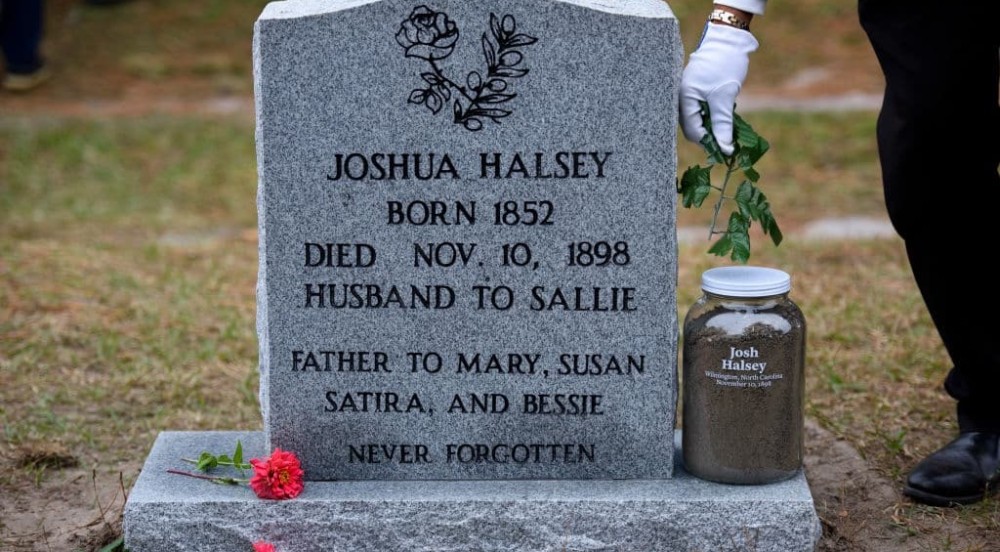A North Carolina man who was killed during the race massacre in Wilmington, North Carolina 123 years ago, was honored with a funeral, CNN reports.
In November of 1898, Joshua Halsey was murdered by white supremacists in a race riot that took the lives of hundreds of Black people, as they pushed back on the progress who Black residents. Also, the rioters burned down the Daily Record, the Black newspaper.
After years of research, the gravesites of Halsey and another man named Samuel McFarland, were the first to be identified. It is believed that around 100 more could be discovered.
Elaine Cynthia Brown, a Halsey descendent, said the discovery of the gravesite was "surreal' for the entire family.
"We were in shock, because this is so unprecedented," Brown told CNN. "But then we said, 'You know what? Why not Joshua?'"
"Why not be the beacon of what can happen when we sort of unearth the truth, uncover the truth and unpack it?" Brown said. "You know, this is where it's going to start and the stories are going to come out as more victims are found, and we hear their stories. But we now know that it exists. We now know that we can change it. We now are getting the true history of what happened here."
Wilmington, like the Black Wall Street in Tulsa, Oklahoma, was a thriving metropolis for Black people who had built their own community that housed a building and loan association and several libraries. According to Time, Black men held public offices as councilmen, magistrates, and police officers and the town had 65 black doctors, lawyers, and educators. They "were employed in all segments of the workforce, as professionals, skilled artisans, government employees, maritime crew members, industrial workers, laborers and domestics," the 1898 Wilmington Race Riot Commission found.
The tragic events ushered in a new era of racial terror, state violence, and voter discrimination that would reign in North Carolina for years to come.
"The events of the 1898 coup marked a turning point in the post-Reconstruction South that changed the trajectory of race relations in North Carolina and marked the start of Jim Crow laws in the state, which further enforced racial segregation through the mid-20th century," according to the William Madison Randall Library of the University of North Carolina Wilmington.
Gwendolyn Alexis, a great-granddaughter of Halsey's, who teaches African American history, including the Wilmington massacre, just recently discovered that she was a descendent of Halsey.
"And when I found out that my great grandfather was killed, one of the people killed, it took my breath away," Alexis told CNN. "Because not only did I find family, I found history," and it made it much more real, she said.
The commemoration is part of a series of events planned throughout the month of November by the county, the city of Wilmington, and several organizations to honor the memories of those who lost their lives in the massacre.
The ceremony, which took place on Saturday, was attended by Rev. William Barber II, of the Poor People's Campaign who gave the eulogy and a horse-drawn hearse carried to the funeral soil collected from the site of Halsey's home.













